The Microbiology Society Annual Conference 2018 will take place over four days between Tuesday 10 April and Friday 13 April and will be held at the International Conference Centre (ICC), Birmingham, UK.
The Society’s Annual Conference attracts over 1,400 attendees for the UK’s largest annual gathering of microbiologists and you can see what took place at our 2017 conference on YouTube.
If you have any questions please email us at [email protected].
To get the latest news and updates, follow us on Twitter @MicrobioSoc using the hashtag #Microbio18, and like our Facebook page.
This session is now fully booked.
The Professional Development Committee are delighted to present a symposium on teaching microbiology in higher education. This half-day interactive symposium will bring delegates together to discuss innovative teaching practices, including the opportunity to share lessons learned. There will also be a chance to discuss the impact of the implementation of the Teaching Excellence Framework on lecturers, and also HEA fellowship and degree accreditation. This will be a great opportunity for those teaching in higher education environments to come together to share best practices and form a network to learn from each other.
This session will take place on 9 April 2018 at the ICC Birmingham. Limited tickets are available, and are priced at £10 as a contribution to refreshments. Further details about this symposium will follow in due course.
You can find out more about this symposium by downloading the leaflet below:
Image: ICC Birmingham.
This half-day symposium will present several interactive sessions which aim to bring delegates together to discuss and share innovative ways of teaching. Delegates will benefit from hearing about the successes of others and identify how best to tackle areas needing improvement. The impact of the Teaching Excellence Framework on teaching staff and the use of modern teaching methods will be explored during the afternoon. A key output of the symposium will be a network for delegates to continue to share current pedagogical approaches.
Tadhg Ó’Cróinín (University College Dublin), Alison Graham (University of Newcastle), Sarah Maddocks (Cardiff Metropolitan University), David Whitworth (Aberystwyth University)
This half-day symposium will present several interactive sessions which aim to bring delegates together to discuss and share innovative ways of teaching. Delegates will benefit from hearing about the successes of others and identify how best to tackle areas needing improvement. The impact of the Teaching Excellence Framework on teaching staff and the use of modern teaching methods will be explored during the afternoon. A key output of the symposium will be a network for delegates to continue to share current pedagogical approaches.
Tadhg Ó’Cróinín (University College Dublin), Alison Graham (University of Newcastle), Sarah Maddocks (Cardiff Metropolitan University), David Whitworth (Aberystwyth University)
Recent technological advances have greatly improved our knowledge of the distribution and dynamics of the thousands of microbial species that are found associated with the human body. In many instances, we exist in apparent harmony with this resident microbiota, but when conditions allow, this relationship can break down rapidly, often with negative consequences for human health. There remains much to be learnt regarding the behaviour of these diverse microbial communities, but such understanding is essential for us to hope to modulate the host–microbiota interface for human benefit. This session aims to bring together world leaders across both prokaryotic and eukaryotic divisions to discuss the latest advances in the study of mechanisms by which hitherto beneficial or ‘commensal’ microorganisms present in or on humans can emerge as potential pathogens. Factors that will be considered include: (i) interactions with other microbes (e.g. how cross-kingdom dialogue might stabilise or disrupt ‘protective’ microbial populations); (ii) how the host immune response modulates microbial behaviour or vice versa; (iii) how the pathogenic potential of microbes can vary according to ecological niche or ‘healthy’ vs immunocompromised host; and (iv) how microbial adaptation (e.g. transmission dynamics; acquisition or variation in gene content) can affect pathogenicity.
Ian Roberts (Quadram Institute, UK), Daniela Delneri (University of Manchester, UK), Angela Nobbs (University of Bristol, UK), Kim Hardie (University of Nottingham, UK)
Our understanding of eukaryotic cell biology is based on our ability to manipulate experimental systems. As a result, most of our knowledge is centred on a small number of model systems which do not represent the diversity of eukaryotes across the tree of life, nor do they capture all biological phenomena. Advances in genetic technologies and genome sequencing mean that we are now able to address many more fascinating questions on a broader scale, revealing new cell biology and with potential widespread importance. In this session, speakers will present the state-of-the-art in diverse emerging model systems, and discuss some of the challenges in establishing a new model, in which lineages new models are most required, approaches for sharing methodologies, and strengths and limitations of emerging systems.
Catarina Gadelha (University of Nottingham, UK), Ed Louis (University of Leicester, UK)
Escherichia coli is the best studied and well-characterised species in the world. E. coli has acted as a model in all areas of microbiology: from physiology to pathogenesis. Pathogenic E. coli isolates encompass diverse infections from bacteraemia and urinary tract infections to various diarrhoeal infections, and it has emerged as a major global antimicrobial resistance threat. Association of E. coli with animal gut microbiota has led to it being a faecal indicator organism, although it is widespread and can be persistent in the environment. Phylogenetic analyses are contributing to a new appreciation of the evolution and diversity of the species. This symposium will bring together researchers from across the full spectrum of microbiology to discuss the advances that E. coli has facilitated as both a model organism and a species worthy of research in its own right, since the last major UK conference focusing on E. coli (the Microbiology Society Spring Meeting of 2010). This meeting will be a timely opportunity to recap on our existing knowledge as well as identify future directions.
Alan McNally (University of Birmingham, UK), Nicola Holden (James Hutton Institute, UK)
A panel of representatives from funding bodies, including BBSRC, NERC, MRC and the Wellcome Trust, will provide essential insight into their expectations for grant applications. Delegates will learn about the skill and knowledge needed to write successful grant applications and have the opportunity to ask questions about what funding bodies want. This session will also give delegates the opportunity to explore how the grant-making process works. This session is aimed at those who are planning to make an application for research funding, and therefore would be useful for those at the postdoctoral researcher stage and onwards.
Nigel Brown (University of Edinburgh, UK)
Session sponsored by MP Biomedicals
Our understanding of microbial diversity, both phylogenetic and functional, continues to expand, including the realisation that a key factor in understanding the importance of microbial diversity is the interaction between organisms. Microbial interactions are varied and complex, taking place between microbes (microbe–microbe), with other organisms (e.g. plant–microbe) and with the abiotic environment. As a result, a diverse range of biological and ecological relationships have developed, including syntrophy, parasitism and symbiosis, which underpin processes such as ecosystem functioning and microbiome development. Microbial interactions are essential in global biogeochemical cycling, host response, development of antibiotic resistance and biotechnology. An array of tools are available to study microbial interactions, including omics technologies, isotope-based approaches, single-cell techniques and model microbial systems.
This session will bring together microbiologists from different fields engaged in understanding microbial interaction and their impacts on a variety of processes. This will include microbial interaction in natural ecosystems (e.g. sediments, soils, marine ecosystems and deep biosphere), engineered systems (e.g. wastewater, bioreactors) and host associated (e.g. plants).
Joanne Santini (University College London, UK), Geertje van Keulen (Swansea University, UK), Michael Cunliffe (University of Plymouth, UK)
The immune system is our main defence against microbial pathogens. A variety of model systems have been developed to allow an examination of the immune response and the factors affecting its efficacy. These systems extend from cell culture-based assays, to whole organism system utilising invertebrates (e.g. insects) or vertebrates (e.g. zebra fish). Insects such as Galleria mellonella and Bombyx mori have also been used to assess the virulence of fungal and bacterial pathogens and the results obtained show a strong correlation to those generated using mammalian models. In addition, insects have been exploited for measuring the toxicity of compounds and for assessing the in vivo efficacy of antimicrobial drugs. Recent investigations have extended the use of insect models to study disease processes such as Listeria-induced neural pathologies that show strong similarities to disease development processes in mammals. This session will highlight the use of model systems from in vitro infection assay through to in vivo models for adaptive immunity for studying the host–pathogen interactions and demonstrate how results obtained using these systems can be translated to understanding mammalian immune responses.
Rebecca Hall (University of Birmingham, UK), Kevin Kavanagh (Maynooth University, Ireland)
Modern sequencing is revealing the existence of huge numbers of viruses, many of which are related to agents that we recognise and many of which are totally new. This is evident in all parts of the living world and particularly in samples from exotic or unusual environments. As a result, we are gaining a completely new appreciation of the amazing diversity of viruses , the many ways in which they have evolved and the important effects that they are having on the planet. Their overwhelming numbers are also making us consider how taxonomy can continue to provide a key context to virology. This one day symposium adds to the growing links between the Microbiology Society and the International Committee on Taxonomy of Viruses (ICTV). The speakers are international experts in viral metagenomics, bioinformatics, evolution, phylodynamics and taxonomy. together, they will explain tremendously dynamic subject that is at the forefront of theoretical and experimental virology.
David Evans (University of St Andrews, UK), Stephen Griffin (University of Leeds, UK), Andrew Davison (University of Glasgow, UK)
Recent technological advances have greatly improved our knowledge of the distribution and dynamics of the thousands of microbial species that are found associated with the human body. In many instances, we exist in apparent harmony with this resident microbiota, but when conditions allow, this relationship can break down rapidly, often with negative consequences for human health. There remains much to be learnt regarding the behaviour of these diverse microbial communities, but such understanding is essential for us to hope to modulate the host–microbiota interface for human benefit. This session aims to bring together world leaders across both prokaryotic and eukaryotic divisions to discuss the latest advances in the study of mechanisms by which hitherto beneficial or ‘commensal’ microorganisms present in or on humans can emerge as potential pathogens. Factors that will be considered include: (i) interactions with other microbes (e.g. how cross-kingdom dialogue might stabilise or disrupt ‘protective’ microbial populations); (ii) how the host immune response modulates microbial behaviour or vice versa; (iii) how the pathogenic potential of microbes can vary according to ecological niche or ‘healthy’ vs immunocompromised host; and (iv) how microbial adaptation (e.g. transmission dynamics; acquisition or variation in gene content) can affect pathogenicity.
Ian Roberts (Quadram Institute, UK), Daniela Delneri (University of Manchester, UK), Angela Nobbs (University of Bristol, UK), Kim Hardie (University of Nottingham, UK)
Our understanding of eukaryotic cell biology is based on our ability to manipulate experimental systems. As a result, most of our knowledge is centred on a small number of model systems which do not represent the diversity of eukaryotes across the tree of life, nor do they capture all biological phenomena. Advances in genetic technologies and genome sequencing mean that we are now able to address many more fascinating questions on a broader scale, revealing new cell biology and with potential widespread importance. In this session, speakers will present the state-of-the-art in diverse emerging model systems, and discuss some of the challenges in establishing a new model, in which lineages new models are most required, approaches for sharing methodologies, and strengths and limitations of emerging systems.
Catarina Gadelha (University of Nottingham, UK), Ed Louis (University of Leicester, UK)
Escherichia coli is the best studied and well-characterised species in the world. E. coli has acted as a model in all areas of microbiology: from physiology to pathogenesis. Pathogenic E. coli isolates encompass diverse infections from bacteraemia and urinary tract infections to various diarrhoeal infections, and it has emerged as a major global antimicrobial resistance threat. Association of E. coli with animal gut microbiota has led to it being a faecal indicator organism, although it is widespread and can be persistent in the environment. Phylogenetic analyses are contributing to a new appreciation of the evolution and diversity of the species. This symposium will bring together researchers from across the full spectrum of microbiology to discuss the advances that E. coli has facilitated as both a model organism and a species worthy of research in its own right, since the last major UK conference focusing on E. coli (the Microbiology Society Spring Meeting of 2010). This meeting will be a timely opportunity to recap on our existing knowledge as well as identify future directions.
Alan McNally (University of Birmingham, UK), Nicola Holden (James Hutton Institute, UK)
Session sponsored by MP Biomedicals
Our understanding of microbial diversity, both phylogenetic and functional, continues to expand, including the realisation that a key factor in understanding the importance of microbial diversity is the interaction between organisms. Microbial interactions are varied and complex, taking place between microbes (microbe–microbe), with other organisms (e.g. plant–microbe) and with the abiotic environment. As a result, a diverse range of biological and ecological relationships have developed, including syntrophy, parasitism and symbiosis, which underpin processes such as ecosystem functioning and microbiome development. Microbial interactions are essential in global biogeochemical cycling, host response, development of antibiotic resistance and biotechnology. An array of tools are available to study microbial interactions, including omics technologies, isotope-based approaches, single-cell techniques and model microbial systems.
This session will bring together microbiologists from different fields engaged in understanding microbial interaction and their impacts on a variety of processes. This will include microbial interaction in natural ecosystems (e.g. sediments, soils, marine ecosystems and deep biosphere), engineered systems (e.g. wastewater, bioreactors) and host associated (e.g. plants).
Joanne Santini (University College London, UK), Geertje van Keulen (Swansea University, UK), Michael Cunliffe (University of Plymouth, UK)
The immune system is our main defence against microbial pathogens. A variety of model systems have been developed to allow an examination of the immune response and the factors affecting its efficacy. These systems extend from cell culture-based assays, to whole organism system utilising invertebrates (e.g. insects) or vertebrates (e.g. zebra fish). Insects such as Galleria mellonella and Bombyx mori have also been used to assess the virulence of fungal and bacterial pathogens and the results obtained show a strong correlation to those generated using mammalian models. In addition, insects have been exploited for measuring the toxicity of compounds and for assessing the in vivo efficacy of antimicrobial drugs. Recent investigations have extended the use of insect models to study disease processes such as Listeria-induced neural pathologies that show strong similarities to disease development processes in mammals. This session will highlight the use of model systems from in vitro infection assay through to in vivo models for adaptive immunity for studying the host–pathogen interactions and demonstrate how results obtained using these systems can be translated to understanding mammalian immune responses.
Rebecca Hall (University of Birmingham, UK), Kevin Kavanagh (Maynooth University, Ireland)
Modern sequencing is revealing the existence of huge numbers of viruses, many of which are related to agents that we recognise and many of which are totally new. This is evident in all parts of the living world and particularly in samples from exotic or unusual environments. As a result, we are gaining a completely new appreciation of the amazing diversity of viruses , the many ways in which they have evolved and the important effects that they are having on the planet. Their overwhelming numbers are also making us consider how taxonomy can continue to provide a key context to virology. This one day symposium adds to the growing links between the Microbiology Society and the International Committee on Taxonomy of Viruses (ICTV). The speakers are international experts in viral metagenomics, bioinformatics, evolution, phylodynamics and taxonomy. together, they will explain tremendously dynamic subject that is at the forefront of theoretical and experimental virology.
David Evans (University of St Andrews, UK), Stephen Griffin (University of Leeds, UK), Andrew Davison (University of Glasgow, UK)
Recent technological advances have greatly improved our knowledge of the distribution and dynamics of the thousands of microbial species that are found associated with the human body. In many instances, we exist in apparent harmony with this resident microbiota, but when conditions allow, this relationship can break down rapidly, often with negative consequences for human health. There remains much to be learnt regarding the behaviour of these diverse microbial communities, but such understanding is essential for us to hope to modulate the host–microbiota interface for human benefit. This session aims to bring together world leaders across both prokaryotic and eukaryotic divisions to discuss the latest advances in the study of mechanisms by which hitherto beneficial or ‘commensal’ microorganisms present in or on humans can emerge as potential pathogens. Factors that will be considered include: (i) interactions with other microbes (e.g. how cross-kingdom dialogue might stabilise or disrupt ‘protective’ microbial populations); (ii) how the host immune response modulates microbial behaviour or vice versa; (iii) how the pathogenic potential of microbes can vary according to ecological niche or ‘healthy’ vs immunocompromised host; and (iv) how microbial adaptation (e.g. transmission dynamics; acquisition or variation in gene content) can affect pathogenicity.
Ian Roberts (Quadram Institute, UK), Daniela Delneri (University of Manchester, UK), Angela Nobbs (University of Bristol, UK), Kim Hardie (University of Nottingham, UK)
Escherichia coli is the best studied and well-characterised species in the world. E. coli has acted as a model in all areas of microbiology: from physiology to pathogenesis. Pathogenic E. coli isolates encompass diverse infections from bacteraemia and urinary tract infections to various diarrhoeal infections, and it has emerged as a major global antimicrobial resistance threat. Association of E. coli with animal gut microbiota has led to it being a faecal indicator organism, although it is widespread and can be persistent in the environment. Phylogenetic analyses are contributing to a new appreciation of the evolution and diversity of the species. This symposium will bring together researchers from across the full spectrum of microbiology to discuss the advances that E. coli has facilitated as both a model organism and a species worthy of research in its own right, since the last major UK conference focusing on E. coli (the Microbiology Society Spring Meeting of 2010). This meeting will be a timely opportunity to recap on our existing knowledge as well as identify future directions.
Alan McNally (University of Birmingham, UK), Nicola Holden (James Hutton Institute, UK)
This hands-on workshop will introduce you to the range of publicly accessible data resources and tools developed and maintained by EMBL-EBI. You will be shown how to explore the services available and how to quickly search for data of interest, focusing on those services which contain microbiologically relevant data. Additionally you will gain some tips and best practice for managing your data and preparing it for submission to a public resource. Bring along a laptop or tablet to join in the hands-on practical – no previous experience of bioinformatics or any specific software (except for a web browser) is required for you to join this workshop.
Melissa Burke (The European Bioinformatics Institute, UK)
The capacity of pathogenic micro-organisms to adapt to changes in environmental metal availability is critical for pathogenicity. Certain inorganic trace elements, including iron, zinc and copper, are essential for life, but can also be toxic. The mammalian immune system has harnessed both the essentiality and toxicity of these micronutrients to combat microbial infections: processes known as “nutritional immunity”. For example, the vast majority of iron and zinc in the human body is tightly bound and compartmentalised, and nutritional restriction increases further during inflammation. Microbial pathogens require micronutrients not only for basic physiology and proliferation, but for counteracting other arms of immunity. For example, both catalases and superoxide dismutases require metal cofactors for function. In contrast, certain immune phagocytes flood their phagosomes with potentially lethal levels of copper. Therefore, in order to survive and proliferate within a mammalian host, microbial pathogens must possess highly efficient metal homeostatic mechanisms. Recently, significant advances have been made in our understanding of how microbial pathogens fine-tune cellular metal homeostasis in order to deal with the challenging environments faced during infection. This session will cover the molecular mechanisms of microbial metal homeostasis and how these processes contribute to pathogenicity and virulence. “Microbial metal homeostasis: impacts on pathogenicity” covers a variety of both prokaryotic and eukaryotic pathogenic species and will therefore be of interest to bacteriologists and mycologists, as well as immunologists interested in the pathogenesis of microbial infections.
Duncan Wilson (University of Aberdeen, UK), Kevin Waldron (University of Newcastle, UK)
Synthetic ecology involves the design and engineering of microbial consortia, either to gain a better understanding of microbial community function or to build new functioning communities. It is a rapidly emerging research topic that brings the tools of synthetic biology into microbial ecology. There are many examples where important ecological functions or biotechnological processes are carried out by microbial consortia rather than individual species: for example, biogeochemical cycles, human gut function, wastewater treatment, among many others. Engineering microbial communities can involve manipulating existing communities or designing entirely new interactions to carry out a particular function. This is an exciting research topic that spans basic and applied disciplines, includes concepts like mathematical modelling and touches on important biological themes like signalling, symbiosis and nutrient exchange. Using synthetic ecology to develop new microbial consortia, as opposed to single-species cell factories, might be the next big development in microbial biotechnology.
John Morrissey (University College Cork, Ireland), Geertje van Keulen (Swansea University, USA), Mat Goddard (University of Lincoln, UK)
The successful replication of all viruses, regardless of whether they have an RNA or DNA genome, relies on the translation of their proteins by the cellular translation machinery. In response to virus infection, the host aims to stop translation and shut down virus production, resulting in a dynamic battle between host and virus to gain control of the ribosome. Viruses have developed a range of strategies to win this battle, such as bypassing normal initiation processes, hijacking translation factors, shutting off host protein synthesis in favour of their own, and inhibiting the signalling pathways that control translation. This two-day symposium will incorporate an overview of virus manipulation of the translation process, from a range of international experts on plant, insect and mammalian systems, providing a broad and up-to-date account of the field.
Gill Elliott (University of Surrey, UK), Chris McCormick (University of Southampton, UK), Martina Scallan (University College Cork, Ireland), Andrew MacDonald (University of Leeds, UK)
The capacity of pathogenic micro-organisms to adapt to changes in environmental metal availability is critical for pathogenicity. Certain inorganic trace elements, including iron, zinc and copper, are essential for life, but can also be toxic. The mammalian immune system has harnessed both the essentiality and toxicity of these micronutrients to combat microbial infections: processes known as “nutritional immunity”. For example, the vast majority of iron and zinc in the human body is tightly bound and compartmentalised, and nutritional restriction increases further during inflammation. Microbial pathogens require micronutrients not only for basic physiology and proliferation, but for counteracting other arms of immunity. For example, both catalases and superoxide dismutases require metal cofactors for function. In contrast, certain immune phagocytes flood their phagosomes with potentially lethal levels of copper. Therefore, in order to survive and proliferate within a mammalian host, microbial pathogens must possess highly efficient metal homeostatic mechanisms. Recently, significant advances have been made in our understanding of how microbial pathogens fine-tune cellular metal homeostasis in order to deal with the challenging environments faced during infection. This session will cover the molecular mechanisms of microbial metal homeostasis and how these processes contribute to pathogenicity and virulence. “Microbial metal homeostasis: impacts on pathogenicity” covers a variety of both prokaryotic and eukaryotic pathogenic species and will therefore be of interest to bacteriologists and mycologists, as well as immunologists interested in the pathogenesis of microbial infections.
Duncan Wilson (University of Aberdeen, UK), Kevin Waldron (University of Newcastle, UK)
Bacterial transitions between host species, including humans and wild and domesticated animals, is typically accompanied by evolutionary changes that promote survival in the novel niche. Understanding the dynamics of zoonotic infection and the nature of host adaptation is key for describing human and animal disease emergence and epidemiology. Recent technical advances, for example high-throughput sequencing, are providing new opportunities for investigating bacteria–host ecology, epidemiology and evolution. These include identification of emergent zoonoses, determining the direction and timescale of host jumps, identifying genomic elements associated with host adaptation – and their encoded functions – and investigating the evolutionary landscape that promotes host transition. This session provides an opportunity for zoonosis researchers to come together and present the latest research in this area. Drawing on the recent studies, we describe the current understanding of host-association patterns in structured bacterial populations, mechanisms of evolution, and the genetic and functional basis of bacterial pathogen host-adaptation. The session will be an opportunity to (i) assess new emerging diseases; (ii) present new insights using modern techniques; (iii) update epidemiological studies of important zoonotic pathogens; and (iv) discuss novel approaches for controlling the emergence of new pathogenic clones.
Samuel K. Sheppard (University of Bath, UK), Nicola Holden (James Hutton Institute, UK), Jonathan G. Shaw (University of Sheffield, UK), Luigi Marongiu (University of Edinburgh, UK)
This session will involve a range of clinical virology cases which relate to studies relevant to the Clinical Virology Network. Different aspects of clinical virology that will be covered include: differential diagnosis of encephalitis, management of hepatitis, diversity of rotavirus sequences, and diagnosis of respiratory infections.
Stephen Winchester (Frimley Park Hospital NHS Foundation Trust, UK) and Tamyo Mbisa (Public Health England, UK)
Offered papers will be presented in areas related to infections caused by prokaryote and eukaryote pathogens of human, veterinary or botanical significance including epidemiology, diagnosis, identification, typing, pathogenesis, treatment, antimicrobial agents and resistance, prevention, virulence factors, host responses and immunity, transmission, and models of infection at the cell, tissue or whole organism level.
Sabine Tötemeyer, Sarah Maddocks, Steve Michell, Daniela Delneri
Synthetic ecology involves the design and engineering of microbial consortia, either to gain a better understanding of microbial community function or to build new functioning communities. It is a rapidly emerging research topic that brings the tools of synthetic biology into microbial ecology. There are many examples where important ecological functions or biotechnological processes are carried out by microbial consortia rather than individual species: for example, biogeochemical cycles, human gut function, wastewater treatment, among many others. Engineering microbial communities can involve manipulating existing communities or designing entirely new interactions to carry out a particular function. This is an exciting research topic that spans basic and applied disciplines, includes concepts like mathematical modelling and touches on important biological themes like signalling, symbiosis and nutrient exchange. Using synthetic ecology to develop new microbial consortia, as opposed to single-species cell factories, might be the next big development in microbial biotechnology.
John Morrissey (University College Cork, Ireland), Geertje van Keulen (Swansea University, USA), Mat Goddard (University of Lincoln, UK)
The successful replication of all viruses, regardless of whether they have an RNA or DNA genome, relies on the translation of their proteins by the cellular translation machinery. In response to virus infection, the host aims to stop translation and shut down virus production, resulting in a dynamic battle between host and virus to gain control of the ribosome. Viruses have developed a range of strategies to win this battle, such as bypassing normal initiation processes, hijacking translation factors, shutting off host protein synthesis in favour of their own, and inhibiting the signalling pathways that control translation. This two-day symposium will incorporate an overview of virus manipulation of the translation process, from a range of international experts on plant, insect and mammalian systems, providing a broad and up-to-date account of the field.
Gill Elliott (University of Surrey, UK), Chris McCormick (University of Southampton, UK), Martina Scallan (University College Cork, Ireland), Andrew MacDonald (University of Leeds, UK)
Bacterial transitions between host species, including humans and wild and domesticated animals, is typically accompanied by evolutionary changes that promote survival in the novel niche. Understanding the dynamics of zoonotic infection and the nature of host adaptation is key for describing human and animal disease emergence and epidemiology. Recent technical advances, for example high-throughput sequencing, are providing new opportunities for investigating bacteria–host ecology, epidemiology and evolution. These include identification of emergent zoonoses, determining the direction and timescale of host jumps, identifying genomic elements associated with host adaptation – and their encoded functions – and investigating the evolutionary landscape that promotes host transition. This session provides an opportunity for zoonosis researchers to come together and present the latest research in this area. Drawing on the recent studies, we describe the current understanding of host-association patterns in structured bacterial populations, mechanisms of evolution, and the genetic and functional basis of bacterial pathogen host-adaptation. The session will be an opportunity to (i) assess new emerging diseases; (ii) present new insights using modern techniques; (iii) update epidemiological studies of important zoonotic pathogens; and (iv) discuss novel approaches for controlling the emergence of new pathogenic clones.
Samuel K. Sheppard (University of Bath, UK), Nicola Holden (James Hutton Institute, UK), Jonathan G. Shaw (University of Sheffield, UK), Luigi Marongiu (University of Edinburgh, UK)
Like all other living organisms, microbial DNA suffers continual physical and chemical assault. Indeed, some bacteria (such as the radiation-resistant species Deinococcus radiodurans) even thrive in environments that are hostile to DNA integrity. However, if not repaired, the resulting lesions become fixed during DNA replication, leading to heritable alterations in the genome. We now know that a plethora of elegant mechanisms are used to identify and repair the different types of DNA damage that can accrue, and the last decade has seen step changes in our understanding of these mechanisms at the molecular and cellular level. In this session, we explore these advances in detail, and also take a look at what happens when the repair machinery fails. For example, one consequence of defective DNA repair is an increase in the mutation rate, effectively "pumping the gas-pedal of the evolutionary accelerator" and catalysing the appearance of adaptive traits such as antibiotic resistance. A better understanding of the mechanisms that constrain this evolutionary playground therefore has very direct relevance to basic scientists, clinicians, and evolutionary biologists alike.
Martin Welch (University of Cambridge, UK), Lori Snyder (Kingston University, UK)
This forum focuses on any area in environmental, ecological, applied and industrial microbiology, including (non-human) host–microbe communities and interactions, marine and freshwater microbiology, soil and geomicrobiology, air-, cryo- and extremophile microbiology, climate change, biotechnology, bio-processing and bio-engineering, food microbiology, and other applied and industrial microbial processes, including microbe-mediated biodegradation and bioremediation.
Jon Shaw, Jennifer Mitchell, Ryan Seipke, Tasos Tsaousis
Scientists can play an important role informing policy-making, whether providing scientific evidence and solutions to policy-makers to help address grand challenges such as antimicrobial resistance or climate change, or informing science policy on research skills, funding, and infrastructure. This workshop will feature talks from Dr Sarah Bunn (Scientific Adviser, Parliamentary Office of Science and Technology), James Tooze (Policy Officer, Campaign for Science and Engineering) and Dr Paul Richards (Policy Manager, Microbiology Society) about the role of research in parliament and government, and how microbiologists can engage with policy-making. Interactive sessions will enable participants to develop knowledge and skills to effectively communicate their science to policy-makers.
Sarah Bunn (Parliamentary Office of Science and Technology [POST], UK), James Tooze (Campaign for Science and Engineering, UK), Paul Richards (Microbiology Society, UK), Roya Ziaie (Microbiology Society, UK)
Offered papers will be presented in areas related to infections caused by prokaryote and eukaryote pathogens of human, veterinary or botanical significance including epidemiology, diagnosis, identification, typing, pathogenesis, treatment, antimicrobial agents and resistance, prevention, virulence factors, host responses and immunity, transmission, and models of infection at the cell, tissue or whole organism level.
Sabine Tötemeyer, Sarah Maddocks, Steve Michell, Daniela Delneri
The Games Microbes Play symposium will address a broad set of questions from the angle of Evolutionary Game Theory, conceptualising issues of cooperation and conflict that can arise between individuals of the same species, commensals of different species, as well as hosts and parasites. Topics of relevance to medical microbiologists and also sociobiologists, theoreticians as well as experimentalists, will be encouraged, from bacterial infection to conflict between social amoebae, to cooperation between insects and their microbial symbionts. Invited speakers represent experimentalists and theorists and the session should interest microbiologists across all Divisions of the Society, since small genomes are especially tractable to analysis of the strategies encoded within them. Several groups within the UK work on aspects of social evolution in microbes, and we will encourage them to submit abstracts, and we also hope to welcome submissions from a wide range of microbiologists working on related issues.
Gareth Bloomfield (MRC-LMB Cambridge, UK), Elinor Thompson (University of Greenwich, UK)
This workshop will involve a range of clinical virology cases or short papers which relate to studies relevant to clinical virology network. Different aspects of clinical virology that will be covered include: differential diagnosis of encephalitis, management of hepatitis, diversity of rotavirus sequences, and diagnosis of respiratory infections.
Stephen Winchester (Frimley Park Hospital NHS Foundation Trust, UK), Tamyo Mbisa (Public Health England, UK)
We invite abstracts on any aspect of DNA viruses. Depending on the abstracts received, the workshop will be structured around a typical life-cycle of DNA viruses and will cover virus entry and uncoating, genome replication, particle structure, assembly and egress. Pathogenesis will be covered to demonstrate the diversity of diseases that these viruses cause, together with the host response to infection, and vaccine or antiviral-based treatments or therapies that can be used to combat infection. Both human and animal pathogens will be covered, including the opportunity for clinicians to present studies on ongoing outbreaks or epidemiological studies.
Colin Crump (University of Cambridge, UK), Joanna Parish (University of Birmingham, UK)
We invite abstracts on any aspect of the biology of negative strand RNA viruses. Depending on the abstracts received, the workshop will be structured around a typical life-cycle of these viruses and will cover virus entry and uncoating, genome replication, particle structure, assembly and egress. Pathogenesis will be covered to demonstrate the diversity of diseases that these viruses cause, together with the host response to infection, and vaccine or antiviral-based treatments or therapies that can be used to combat infection. Both human and animal pathogens will be covered, including the opportunity for clinicians to present studies on ongoing outbreaks or epidemiological studies.
Silke Schepelmann (NIBSC, UK), Martina Scallan (University College Cork, Ireland)
We invite abstracts on any aspect of the biology of positive strand and double strand RNA viruses. Depending on the abstracts received, the workshop will be structured around a typical life-cycle of these viruses and will cover virus entry and uncoating, genome replication, particle structure, assembly and egress. Pathogenesis will be covered to demonstrate the diversity of diseases that these viruses cause, together with the host response to infection, and vaccine or antiviral-based treatments or therapies that can be used to combat infection. Both human and animal pathogens will be covered, including the opportunity for clinicians to present studies on ongoing outbreaks or epidemiological studies.
Chris McCormick (University of Southampton, UK), Erica Bickerton (The Pirbright Institute, UK)
We invite abstracts on any aspect of retrovirus biology. Depending on the abstracts received, the workshop will be structured around a typical life-cycle of a retrovirus and will cover virus entry and uncoating, genome replication, particle structure, assembly and egress. Pathogenesis will be covered to demonstrate the diversity of diseases that these viruses cause, together with the host response to infection, and vaccine or antiviral-based treatments or therapies that can be used to combat infection. Both human and animal pathogens will be covered, including the opportunity for clinicians to present studies on ongoing outbreaks or epidemiological studies.
Kate Bishop (The Francis Crick Institute, UK), Stuart Neil (King's College London, UK)
Bacterial transitions between host species, including humans and wild and domesticated animals, is typically accompanied by evolutionary changes that promote survival in the novel niche. Understanding the dynamics of zoonotic infection and the nature of host adaptation is key for describing human and animal disease emergence and epidemiology. Recent technical advances, for example high-throughput sequencing, are providing new opportunities for investigating bacteria–host ecology, epidemiology and evolution. These include identification of emergent zoonoses, determining the direction and timescale of host jumps, identifying genomic elements associated with host adaptation – and their encoded functions – and investigating the evolutionary landscape that promotes host transition. This session provides an opportunity for zoonosis researchers to come together and present the latest research in this area. Drawing on the recent studies, we describe the current understanding of host-association patterns in structured bacterial populations, mechanisms of evolution, and the genetic and functional basis of bacterial pathogen host-adaptation. The session will be an opportunity to (i) assess new emerging diseases; (ii) present new insights using modern techniques; (iii) update epidemiological studies of important zoonotic pathogens; and (iv) discuss novel approaches for controlling the emergence of new pathogenic clones.
Samuel K. Sheppard (University of Bath, UK), Nicola Holden (James Hutton Institute, UK), Jonathan G. Shaw (University of Sheffield, UK), Luigi Marongiu (University of Edinburgh, UK)
This session will involve a range of clinical virology cases which relate to studies relevant to the Clinical Virology Network. Different aspects of clinical virology that will be covered include: differential diagnosis of encephalitis, management of hepatitis, diversity of rotavirus sequences, and diagnosis of respiratory infections.
Stephen Winchester (Frimley Park Hospital NHS Foundation Trust, UK) and Tamyo Mbisa (Public Health England, UK)
Session sponsored by eLIFE
The living host provides complex ecological niches for thriving microbial communities. Metagenomic and metataxonomic analyses of these microbiotas, along with fluorescence microscopy, reveal which microbes are present within these communities and provide an indication of their relative abundance. These data are now informing our understanding of microbial interactions and the living host. This symposium will address aspects of prokaryote, eukaryote and bacteriophage component interactions of the microbiota in relation to health, disease and the immune system. The major sites of microbial colonisation (the skin, the gastrointestinal tract and the female genital tract) will be included. Offered papers relating to microbiota interactions in both humans and other animals will be considered for presentation within the symposium.
Sheila Patrick (Queen's University Belfast, UK), Sarah Kuehne (University of Birmingham, UK), Sabine Tötemeyer (University of Nottingham, UK), Susan Crosthwaite (University of Manchester, UK), Julian Marchesi (Cardiff University, UK)
Like all other living organisms, microbial DNA suffers continual physical and chemical assault. Indeed, some bacteria (such as the radiation-resistant species Deinococcus radiodurans) even thrive in environments that are hostile to DNA integrity. However, if not repaired, the resulting lesions become fixed during DNA replication, leading to heritable alterations in the genome. We now know that a plethora of elegant mechanisms are used to identify and repair the different types of DNA damage that can accrue, and the last decade has seen step changes in our understanding of these mechanisms at the molecular and cellular level. In this session, we explore these advances in detail, and also take a look at what happens when the repair machinery fails. For example, one consequence of defective DNA repair is an increase in the mutation rate, effectively "pumping the gas-pedal of the evolutionary accelerator" and catalysing the appearance of adaptive traits such as antibiotic resistance. A better understanding of the mechanisms that constrain this evolutionary playground therefore has very direct relevance to basic scientists, clinicians, and evolutionary biologists alike.
Martin Welch (University of Cambridge, UK), Lori Snyder (Kingston University, UK)
This forum will consider offered papers on all aspects of microbial (prokaryotic and eukaryotic) metabolism and physiology, including fundamental research on the biochemistry and structure of cells, cell growth and division, cell architecture and differentiation, synthesis and transport of macromolecules, ions and small molecules and the cell cycle; but also on the role of physiology in microbial engineering, signalling and communication, sensing and cellular responses, the molecular mechanisms behind these phenomena and their potential applications.
Nick Waterfield, Gillian Fraser
The Games Microbes Play symposium will address a broad set of questions from the angle of Evolutionary Game Theory, conceptualising issues of cooperation and conflict that can arise between individuals of the same species, commensals of different species, as well as hosts and parasites. Topics of relevance to medical microbiologists and also sociobiologists, theoreticians as well as experimentalists, will be encouraged, from bacterial infection to conflict between social amoebae, to cooperation between insects and their microbial symbionts. Invited speakers represent experimentalists and theorists and the session should interest microbiologists across all Divisions of the Society, since small genomes are especially tractable to analysis of the strategies encoded within them. Several groups within the UK work on aspects of social evolution in microbes, and we will encourage them to submit abstracts, and we also hope to welcome submissions from a wide range of microbiologists working on related issues.
Gareth Bloomfield (MRC-LMB Cambridge, UK), Elinor Thompson (University of Greenwich, UK)
We invite abstracts on any aspect of DNA viruses. Depending on the abstracts received, the workshop will be structured around a typical life-cycle of DNA viruses and will cover virus entry and uncoating, genome replication, particle structure, assembly and egress. Pathogenesis will be covered to demonstrate the diversity of diseases that these viruses cause, together with the host response to infection, and vaccine or antiviral-based treatments or therapies that can be used to combat infection. Both human and animal pathogens will be covered, including the opportunity for clinicians to present studies on ongoing outbreaks or epidemiological studies.
Colin Crump (University of Cambridge, UK), Joanna Parish (University of Birmingham, UK)
We invite abstracts on any aspect of the biology of negative strand RNA viruses. Depending on the abstracts received, the workshop will be structured around a typical life-cycle of these viruses and will cover virus entry and uncoating, genome replication, particle structure, assembly and egress. Pathogenesis will be covered to demonstrate the diversity of diseases that these viruses cause, together with the host response to infection, and vaccine or antiviral-based treatments or therapies that can be used to combat infection. Both human and animal pathogens will be covered, including the opportunity for clinicians to present studies on ongoing outbreaks or epidemiological studies.
Silke Schepelmann (NIBSC, UK), Martina Scallan (University College Cork, Ireland)
We invite abstracts on any aspect of the biology of positive strand and double strand RNA viruses. Depending on the abstracts received, the workshop will be structured around a typical life-cycle of these viruses and will cover virus entry and uncoating, genome replication, particle structure, assembly and egress. Pathogenesis will be covered to demonstrate the diversity of diseases that these viruses cause, together with the host response to infection, and vaccine or antiviral-based treatments or therapies that can be used to combat infection. Both human and animal pathogens will be covered, including the opportunity for clinicians to present studies on ongoing outbreaks or epidemiological studies.
Chris McCormick (University of Southampton, UK), Erica Bickerton (The Pirbright Institute, UK)
This workshop is linked to the symposium on ‘The global virome’. It is intended to provide a platform for both wet- and dry-lab virologists working in this fast-moving and data-intensive area. Abstracts are invited on any aspect of the scope, causes and consequences of viral diversity, including those relating to the inter- and intra-host evolution, metagenomics, discovery, bioinformatics, phylogenetics, taxonomy and pathogenesis of viruses. This wide spectrum of topics also includes developments in the methodologies used to study viral diversity.
Steve Griffin (University of Leeds, UK), Andrew Davison (University of Glasgow, UK)
Session sponsored by eLIFE
The living host provides complex ecological niches for thriving microbial communities. Metagenomic and metataxonomic analyses of these microbiotas, along with fluorescence microscopy, reveal which microbes are present within these communities and provide an indication of their relative abundance. These data are now informing our understanding of microbial interactions and the living host. This symposium will address aspects of prokaryote, eukaryote and bacteriophage component interactions of the microbiota in relation to health, disease and the immune system. The major sites of microbial colonisation (the skin, the gastrointestinal tract and the female genital tract) will be included. Offered papers relating to microbiota interactions in both humans and other animals will be considered for presentation within the symposium.
Sheila Patrick (Queen's University Belfast, UK), Sarah Kuehne (University of Birmingham, UK), Sabine Tötemeyer (University of Nottingham, UK), Susan Crosthwaite (University of Manchester, UK), Julian Marchesi (Cardiff University, UK)
Mushrooms are magical in a way no other microbe is – their amazing macro-structure means they are instantly visible and recognisable, often brightly coloured and decorating autumn forests. Yet fungi (other than yeast and pathogenic strains) do not feature in the conference line up of any major microbiology meeting. It is our intention to redress that balance by dedicating this session to a variety of research interests that focus on fungi that form fruiting bodies (colloquially known as mushrooms). These include some ascomycetes but are primarily represented by basidiomycetes. We want to look at the ecology of these wonderful organisms, at how endangered they are and the steps being taken to protect them, but also at how they can be used in industry and medicine. The session will highlight links between fundamental research and its applications in medicine and other industrial purposes – thereby giving the programme broader appeal. It is anticipated that a good number of offered oral presentations combined with diverse invited speakers will enable a varied programme looking at fundamental research into fungal ecology and how ‘omics are being used to understand fungal behaviour and conservation, how fungi can be used in bioremediation, and how they may be mined for antimicrobial compounds.
Rebecca Hall (University of Birmingham, UK), Suzy Moody (Swansea University, UK)
Recent years have seen extraordinary advances in the technologies available to study microbial biology. The development of new techniques to probe individual cells and molecules is a major driver of scientific advance. This session aims to cover and showcase a number of new advanced techniques that have been successfully applied to microbiology, including mass spectrometry imaging, light and electron microscopy and Raman spectroscopy. These have diverse applications which we anticipate will attract a broad audience across all the divisions.
Jason King (University of Sheffield, UK), Ryan Seipke (University of Leeds, UK), Katherine Duncan (University of Strathclyde, UK), Kim Hardie (University of Nottingham, UK)
Offered papers on all aspects of the genes and genomes of microbes (prokaryotes and eukaryotes) and their mobile elements will be considered, including their sequencing, transcription, translation, regulation, chromosome dynamics, gene transfer, population genetics and evolution, taxonomy and systematics, comparative genomics, metagenomics, bioinformatics, and synthetic biology.
Ryan Seipke, Lori Synder, Ed Louis
The successful replication of all viruses, regardless of whether they have an RNA or DNA genome, relies on the translation of their proteins by the cellular translation machinery. In response to virus infection, the host aims to stop translation and shut down virus production, resulting in a dynamic battle between host and virus to gain control of the ribosome. Viruses have developed a range of strategies to win this battle, such as bypassing normal initiation processes, hijacking translation factors, shutting off host protein synthesis in favour of their own, and inhibiting the signalling pathways that control translation. This two-day symposium will incorporate an overview of virus manipulation of the translation process, from a range of international experts on plant, insect and mammalian systems, providing a broad and up-to-date account of the field.
Gill Elliott (University of Surrey, UK), Chris McCormick (University of Southampton, UK), Martina Scallan (University College Cork, Ireland), Andrew MacDonald (University of Leeds, UK)
Session sponsored by eLIFE
The living host provides complex ecological niches for thriving microbial communities. Metagenomic and metataxonomic analyses of these microbiotas, along with fluorescence microscopy, reveal which microbes are present within these communities and provide an indication of their relative abundance. These data are now informing our understanding of microbial interactions and the living host. This symposium will address aspects of prokaryote, eukaryote and bacteriophage component interactions of the microbiota in relation to health, disease and the immune system. The major sites of microbial colonisation (the skin, the gastrointestinal tract and the female genital tract) will be included. Offered papers relating to microbiota interactions in both humans and other animals will be considered for presentation within the symposium.
Sheila Patrick (Queen's University Belfast, UK), Sarah Kuehne (University of Birmingham, UK), Sabine Tötemeyer (University of Nottingham, UK), Susan Crosthwaite (University of Manchester, UK), Julian Marchesi (Cardiff University, UK)
Mushrooms are magical in a way no other microbe is – their amazing macro-structure means they are instantly visible and recognisable, often brightly coloured and decorating autumn forests. Yet fungi (other than yeast and pathogenic strains) do not feature in the conference line up of any major microbiology meeting. It is our intention to redress that balance by dedicating this session to a variety of research interests that focus on fungi that form fruiting bodies (colloquially known as mushrooms). These include some ascomycetes but are primarily represented by basidiomycetes. We want to look at the ecology of these wonderful organisms, at how endangered they are and the steps being taken to protect them, but also at how they can be used in industry and medicine. The session will highlight links between fundamental research and its applications in medicine and other industrial purposes – thereby giving the programme broader appeal. It is anticipated that a good number of offered oral presentations combined with diverse invited speakers will enable a varied programme looking at fundamental research into fungal ecology and how ‘omics are being used to understand fungal behaviour and conservation, how fungi can be used in bioremediation, and how they may be mined for antimicrobial compounds.
Rebecca Hall (University of Birmingham, UK), Suzy Moody (Swansea University, UK)
This workshop will provide hands-on training on the use of the MRC-funded Cloud Infrastructure for Microbial Bioinformatics (CLIMB) infrastructure. CLIMB is a cloud-based computing system dedicated to the analysis of microbial bioinformatics data that provides free access to large-scale computing infrastructure for microbial bioinformatics to any UK-based, non-commercial microbial genomics researcher. Attendees are asked to bring their own laptops to the workshop.
This half-day workshop will provide an introduction to CLIMB for any new users, including how to set up and manage accounts and instances, as well as run through the various pipelines that are pre-installed with a CLIMB instance. The workshop will take new users through how to perform work on CLIMB via hands-on guided sessions.
In parallel, experienced CLIMB users will also have the opportunity to learn how to launch and configure more bespoke instances and to learn about new functionality being implemented to support very large data analysis and Docker containers. Finally, we will host a structured discussion for users to report their experiences with CLIMB and to help shape the future development of the platform.
Alan McNally (University of Birmingham, UK), Nicholas Loman (University of Birmingham, UK), Andrew Millard (University of Leicester, UK)
Recent years have seen extraordinary advances in the technologies available to study microbial biology. The development of new techniques to probe individual cells and molecules is a major driver of scientific advance. This session aims to cover and showcase a number of new advanced techniques that have been successfully applied to microbiology, including mass spectrometry imaging, light and electron microscopy and Raman spectroscopy. These have diverse applications which we anticipate will attract a broad audience across all the divisions.
Jason King (University of Sheffield, UK), Ryan Seipke (University of Leeds, UK), Katherine Duncan (University of Strathclyde, UK), Kim Hardie (University of Nottingham, UK)
The successful replication of all viruses, regardless of whether they have an RNA or DNA genome, relies on the translation of their proteins by the cellular translation machinery. In response to virus infection, the host aims to stop translation and shut down virus production, resulting in a dynamic battle between host and virus to gain control of the ribosome. Viruses have developed a range of strategies to win this battle, such as bypassing normal initiation processes, hijacking translation factors, shutting off host protein synthesis in favour of their own, and inhibiting the signalling pathways that control translation. This two-day symposium will incorporate an overview of virus manipulation of the translation process, from a range of international experts on plant, insect and mammalian systems, providing a broad and up-to-date account of the field.
Gill Elliott (University of Surrey, UK), Chris McCormick (University of Southampton, UK), Martina Scallan (University College Cork, Ireland), Andrew MacDonald (University of Leeds, UK)
The posters at Annual Conference provide an excellent platform to showcase emerging scientific research related to the talks programmed during the day. The poster abstract book can be viewed and searched using the Find functionality (CTRL + F) and key words. Please note, no copies of this hard-copy brochure will be printed for this year’s event.
This document contains the full poster content as well as as poster numbers and presentation slots that have been allocated for this year’s conference.
Posters will be displayed in Hall 3 and the upper gallery within the main convention centre throughout the duration of the conference with presentations taking place during evenings and lunchtime on Friday. The space will be divided into four zones, which will be clearly marked with signage and will be grouped by session.
There will be a poster registration desk on-site for support throughout the event. This is located near the main registration area.
There will be three poster prizes available to recognise the best poster presenters over the course of the entire Annual Conference. Please see below for details of each prize. All poster prize winners will be invited to present their poster again at the Society's Annual General Meeting in September 2018.
All poster presenters will be considered for the Microbiology Society Journals' 'Most Promising Science Poster Prize’. Four prizes will be awarded to posters that present particularly compelling or novel research within the subject areas of the following Society journals: Microbiology, Journal of General Virology, Journal of Medical Microbiology and Microbial Genomics. This prize will be judged by the Editors, with the winner receiving a small cash prize and certificate. For more information on the journals, visitwww.microbiologyresearch.org.
All members of the Early Career Microbiologists' (ECM) Forum who are presenting posters will be considered for the ECM Forum Poster Prize. This prize will be judged by the Executive Committee and will recognise the most promising ECM presenters. The winners will receive a prize and certificate.
Please note, the deadline for joining the ECM Forum in order to be considered for the Early Career Microbiologists' Forum Poster Prize is 29 March 2018.
All poster presenters will be entered into the People's Choice Poster Prize, which will identify the three most popular posters presented during the Annual Conference. All delegates will be asked to choose their favourite three posters that they visited and submit these on the voting slip provided in their delegate bag. Winners will be notified by 25 May 2018.
Each year, the Young Microbiologist of the Year Competition recognises and rewards excellence in science communication by a Microbiology Society member who is a postgraduate student or postdoctoral researcher, having gained their PhD in the last two years.
During the Annual Conference, judges will be visiting posters and listening to offered orals by delegates who have entered the competition via the abstract submission. Finalists will be notified in early summer if they have been selected, and will be invited to give a 10-minute oral presentation (plus 5 minutes for questions) at the final at the Society’s Annual General Meeting in September 2018.Online registration is now closed. You can register on site at the conference by visiting the onsite registration desk.
|
Registration categories |
Early bird rate |
Full price rate |
|
|
PER PERSON/PER DAY |
PER PERSON/PER DAY |
|
Non-member |
£220 |
£230 |
|
Full Member |
£120 |
£130 |
|
Full Concessionary Member |
£70 |
£80 |
|
Honorary Members |
||
|
Postgraduate Student Member |
£60 |
£70 |
|
Undergraduate Student Member |
Upon registration you should receive an automated confirmation email. Please contact [email protected] if after 24 hours this has not been received.
If you need a letter of invitation for a visa application, we will be happy to supply this after we have received full payment. To find out if you need a visa to visit the UK, please visit the UK visa and immigration website.
It is the policy of the Microbiology Society not to supply an invitation letter to any delegate without payment and we will not reply to any request from an unregistered delegate. When the delegate has paid, the Conference office will email back a confirmation/receipt letter and, upon request, a letter of invitation, which may be used to obtain the necessary visa.
Please note that all conference delegates are responsible for their own travel and visa arrangements; the Microbiology Society will not take any responsibility for travel or visa problems.
All registration fees must be paid in full BEFORE arrival at the conference. Any outstanding registration fees must be paid before admittance will be granted to the conference.
The conference will be held at the Birmingham's International Conference Centre (ICC):
The International Convention Centre
Broad Street
Birmingham
B1 2EA
General enquiries: +44(0)121 644 5025
Email: [email protected]
The ICC is located centrally in Birmingham city centre and is easily accessible by road from all over the UK. Visitors from any direction can travel in to Birmingham using many different routes connected to the following motorways: M1, M5, M6, M6 Toll, M40 and M42.
There is abundant, secure multi-storey parking available located within the Barclaycard Arena, which is just a short walk away from the ICC. Both the ICC and Barclaycard Arena are signposted on motorways and major roads and are marked on most road maps.
Over 50 airlines operate scheduled and chartered services to and from Birmingham International Airport. The airport is just 8 miles from the city centre. From the airport, there is a free Air-Rail Link to Birmingham International railway station, where you can catch a 10-minute train ride to New Street Station in Birmingham City Centre.
The smaller East Midlands airport is 42 miles away. The closest London airport is London Luton, which is 92 miles away, and London Heathrow is 107 miles.
The ICC is served by the UK’s largest interchange rail station, Birmingham New Street, and the smaller Five Ways Station. Both stations are a short walk from the ICC and taxi ranks are situated close by. Birmingham New Street has direct and regular services to Birmingham International railway station which directly links to Birmingham International Airport and The NEC. It also has many direct services to London Euston, including a service that takes just 80 minutes and runs every 20 minutes.
Birmingham’s two other city centre train stations, Moor St and Snow Hill, are also within quick and easy access of the ICC and directly connected to London Marylebone or London Paddington via an hourly service.
Download maps for walking directions from the 3 main city centre train stations.
Information about train times and fares are available from the National Rail enquiries website.
Virgin trains offer discounted group travel for groups of between 3 and 9 passengers travelling together . This currently stand at a 20% discount off Advance Fares booked through their website - for more information visit the group page of their website.
For information about travel by coach please visit the National Express website.
The nearest car parks to the ICC are located at sister venue the Barclaycard Arena. The North car park is closest or alternatively simply follow the road around on to St Vincent Street for the West car park or carry on further around to Sheepcote Street for the South car park.
Current charges are from £2.30 for up to 2 hours to £8.00 for 24 hours. Payment can be made by coin or card at the Pay and Display machines or via the Parkmobile App. Full cark park charge details can be found here.
Alternative parking is located at Brindleyplace or Paradise Circus.
Birmingham hosts a large number of events and activities within the city centre; therefore we highly recommend you secure your accommodation as soon as possible.
To aid you with this process, our booking agent Reservation Highway has secured a range of accommodation options to suit all budgets, at discounted rates.
All accommodation can be booked online through Reservation Highway's website, or alternatively you can complete the offline booking form, which can be downloaded below:
For further information and booking, please contact Reservation Highway:
Phone: +44 (0)1423 525 577
Email: [email protected]
To ease your attendance at Conference, the Society strives to provide facilities on-site. A map of the ICC venue can be downloaded below:

The Microbiology Society is delighted to announce that we have partnered with Nipperbout to offer a free crèche, which will run at the Annual Conference 2018. The crèche is open to the children of delegates registered to attend the Conference. Held in Executive rooms 1 and 2, the crèche will run as per the following schedule:
The crèche is open to children aged 0 to 12 years.
Please note that the crèche will be closed for lunch and parents are responsible for providing food for their children. Lunch is not provided by the Society or the crèche as part of this offer. It is imperative that you collect your child/children at lunchtime as the staff require a half-hour break. Water and healthy snacks will be available during crèche hours.
In order to register for this service, click the button below and use the following login details:
Register for the crècheUsername: MAC100418
Password: MAC
Once you have entered the above details, you will be able to set up your own account to book your children in to the crèche.
If you have used this service before and already have an account, please log in using your existing account and request to register for the event using the code MAC100418.
Booking is a first come, first served basis. Confirmation of your booking will be sent prior to the Conference.
Please note that you are entering into an agreement with Nipperbout and not with the Microbiology Society.
Nipperbout is an award-winning event childcare company with over 25 years of experience. For more information, please visit Nipperbout's website. If you have any queries about this service or about registering for it, please contact [email protected].
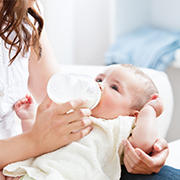
The nursing room will be located in Hall 1 backstage room 4, for parents who need a private place to feed their children.

A cloakroom will be available for delegates. This is located in the foyer near Starbucks. The cost for use of the cloakroom is £1 per item.

A prayer room will be located on level 3, near Hall 11. This is free for delegates to use and is open to all faiths.
Society Conference Grants are available to support eligible members wishing to present at the Annual Conference. Support is also available for members requiring support for caring costs associated with conference attendance. Applications will open on 16 January for a two week period. Full information is available on the Society Conference Grant page. If you are a member who is not eligible for a Society Conference Grant, please apply via the Travel Grant scheme.
The ECM Forum Co-chairing Scheme provides ECM Forum members with the opportunity to be involved in the chairing of scientific sessions at the Annual Conference. The Co-Chairs will not receive any monetary value in co-chairing and will not take the place of a session Chair, but will receive a fantastic professional development opportunity to learn about being a session chair from more experienced colleagues.
Applications for the Co-chairing scheme are now closed. All applications are under review by the Society's Divisions and successful Co-Chairs will be introduced to the relevant session Chair in February.
Co-Chairs will receive a letter of thanks from the ECM Forum Executive Committee confirming that they participated in the Co-Chairing Scheme, and will be recognised in the conference programme.
For questions about the ECM Forum Co-chairing Scheme, please contact [email protected].
In addition to the scientific programme, the Society will be hosting a series of Essential Skills sessions for all delegates wishing to enhance their professional skills in microbiology. Please book your space when registering for the Annual Conference – spaces are limited and complimentary when registering for the day.
Please note, although registering your place for professional development sessions in advance is advised, the sessions will operate on a first come, first served basis. Please arrive with plenty of time to secure your place. Spaces will then be offered to other delegates.
Tuesday 10 April
10:00–12:20
A panel of representatives from funding bodies, including BBSRC, NERC, MRC and the Wellcome Trust, will provide key insight into their expectations for grant applications. This session is aimed at those who are planning to make an application for research funding, and therefore would be useful for those at the postdoctoral researcher stage and onwards.
This session is now fully booked.
Wednesday 11 April
10:00–12:20
This hands-on workshop will introduce you to the range of publicly accessible data resources and tool developed and maintained by EMBL-EBI. You will be shown how to explore the services available and how to quickly search for data of interest and gain some tips and best practice for managing your data and preparing it for submission.
Please note, delegates are asked to bring their own laptop or tablet.
This session is now fully booked.
Thursday 12 April
10:00–12:35
This workshop will feature talks from Dr Sarah Bunn (Scientific Adviser, Parliamentary Office of Science and Technology), James Tooze (Policy Officer, Campaign for Science and Engineering) and Dr Paul Richards (Policy Manager, Microbiology Society) about the role of research in parliament and government, and how microbiologists can engage with policy-making. Interactive sessions will enable participants to develop knowledge and skills to effectively communicate their science to policy-makers.
This session is now fully booked.
The Annual Conference has been accredited by the Institute of Biomedical Science (category Professional activity), The Royal College of Pathologists (35 CPD credits), and the Royal Society of Biology (144 CPD credits).
Those wishing to claim CPD credits should sign a daily register held at the Professional Development information desk, which is located in the exhibition hall. Further information can be requested by email at [email protected].
We have now released additional tickets for the social programme events at Conference to enable you to book guest tickets and multiple tickets at the same time. Please bring with you your confirmation to gain entry. Non-conference attendees welcome.
There are still places are still available for the Pre-Conference networking workshop, please email [email protected] to make a booking.
Society quiz and games night
Date: Tuesday 10 April
Time: 20:00-23:00
Book here
Conference party - Bavarian night
Date: Thursday 12 April
Time: 20:00-00:00
Book here
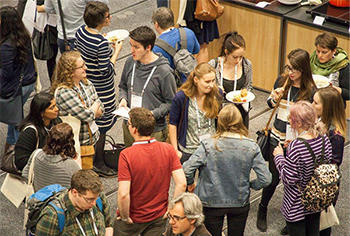
Attending your first conference? Maybe you’re travelling alone, daunted by the prospect of meeting new people, or maybe you’d just like to brush off your networking skills ready for a busy conference ahead. Whatever your reason for attending, the pre-Conference networking event is the place to be on the Monday before the Annual Conference.
You’ll get to know many other delegates while taking part in interactive games, and also have the chance to practice networking with senior members of the Society. Why not take the opportunity to gather up an audience for your presentation later in the week, and join us as we kick start the conference?
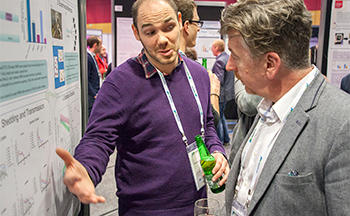
Each evening at conference we will be extending time to network with the conference speakers, session organisers and delegates at our drinks reception.
This will be your opportunity to socialise with your peers, view the posters on display and grab a drink using the vouchers that can be found inside your folded name badge.
There are two vouchers per person, and non-alcoholic drinks will also be available).

The quiz and games night, taking place on Tuesday evening of the Annual Conference, will be held at Shooters – a venue less than a 10-minute walk from the ICC Birmingham.
Doors will open at 20:00, where you will be greeted with a welcome drink, followed by an American-style buffet from 20:15. The quiz itself will then start at 20:45. Make sure you get yourself onto a good team as prizes will be up for grabs! Tickets include a welcome drink, dinner and a drink voucher as well.
Once the quiz ends, don't let your competitive streak end – why not make use of the private games room and challenge your colleagues and friends to shuffleboard or pool?
Book here.
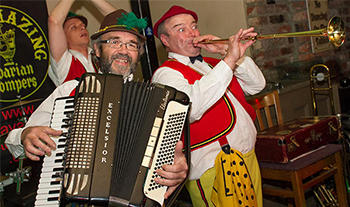
Join us from 20:00 until midnight on Thursday night for a fantastic Oompah band show to celebrate the last night of the Annual Conference. The amazing Bavarian Stompers will put on an action-packed show with real German bierfest music, and lots of comedy and audience participation.
All of this will be accompanied by a Bavarian-style buffet dinner and refreshments.
Book here.
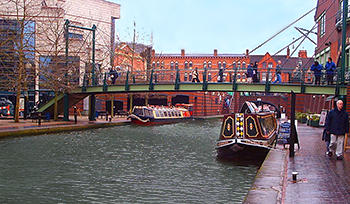
If you have some free time, Birmingham is a vibrant city with plenty to do and explore. Just seconds from the ICC, you can find Brindleyplace, which is full of restaurants and bars.
Birmingham also has museums, opera, theatre and art galleries. Insider tips on the areas can be found on the Visit Birmingham website.
The exhibition is located in a high-traffic area, where all conference meals, coffee breaks and drinks receptions will be held, offering an excellent opportunity to showcase your products, interact with conference delegates and maximise leads.
If you have missed out on this event, we have a number of additional Focused Meetings throughout the year, as well as our 2019 Annual Conference that you can exhibit or sponsor at.
If you require further information or would like to discuss how we can best fit in with your marketing plans, please contact [email protected].
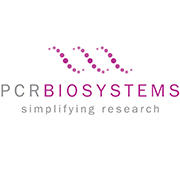
|
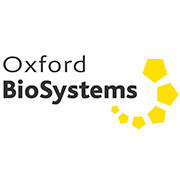
|
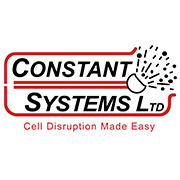
|

|
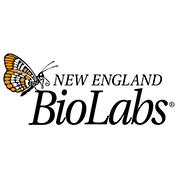
|
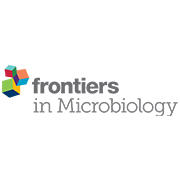
|

|
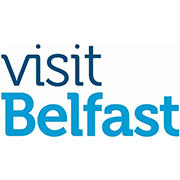
|
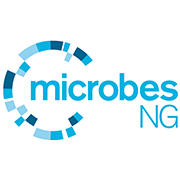
|
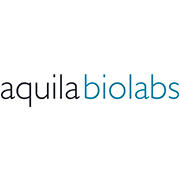
|
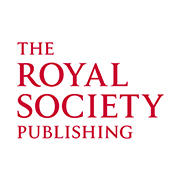
|

|
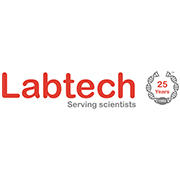
|

|
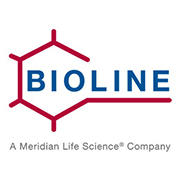
|
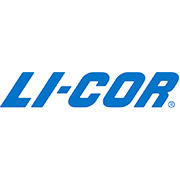
|

|
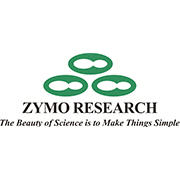
|
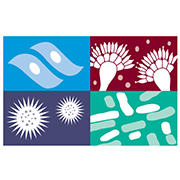
|
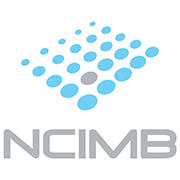
|

|
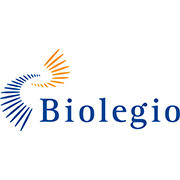
|
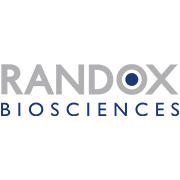
|
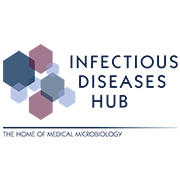
|

|
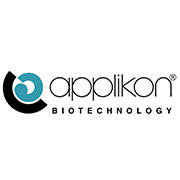
|

|
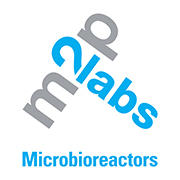
|
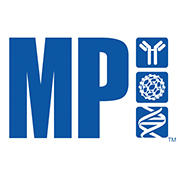
|
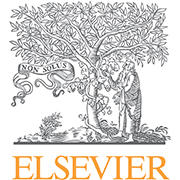
|
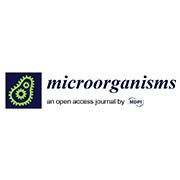
|
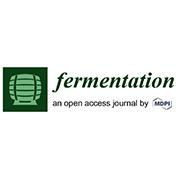
|
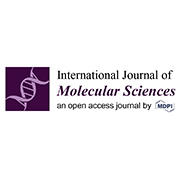
|

|
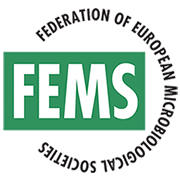
|
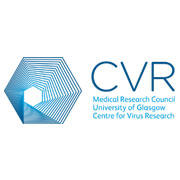
|
|---|
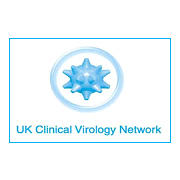
|
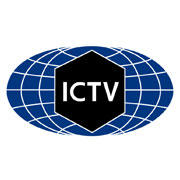
|
You can choose from Gold, Silver and Bronze packages, or Pick and Mix options that can be tailored to your needs and your budget.
Detailed information about available exhibition packages can be found in the Exhibition and Sponsorship Pack, which can be downloaded below:
Download the floor plan here:
To book your exhibition or sponsorship place, please download the fillable registration form below and return the completed form to [email protected].
We are able to offer bespoke sponsorship opportunities that can be found on page 7 of the Exhibition & Sponsorship Pack. Please contact us for further information.
If you are interested in exhibiting at Annual Conference 2018 or any of our other events, please contact [email protected].